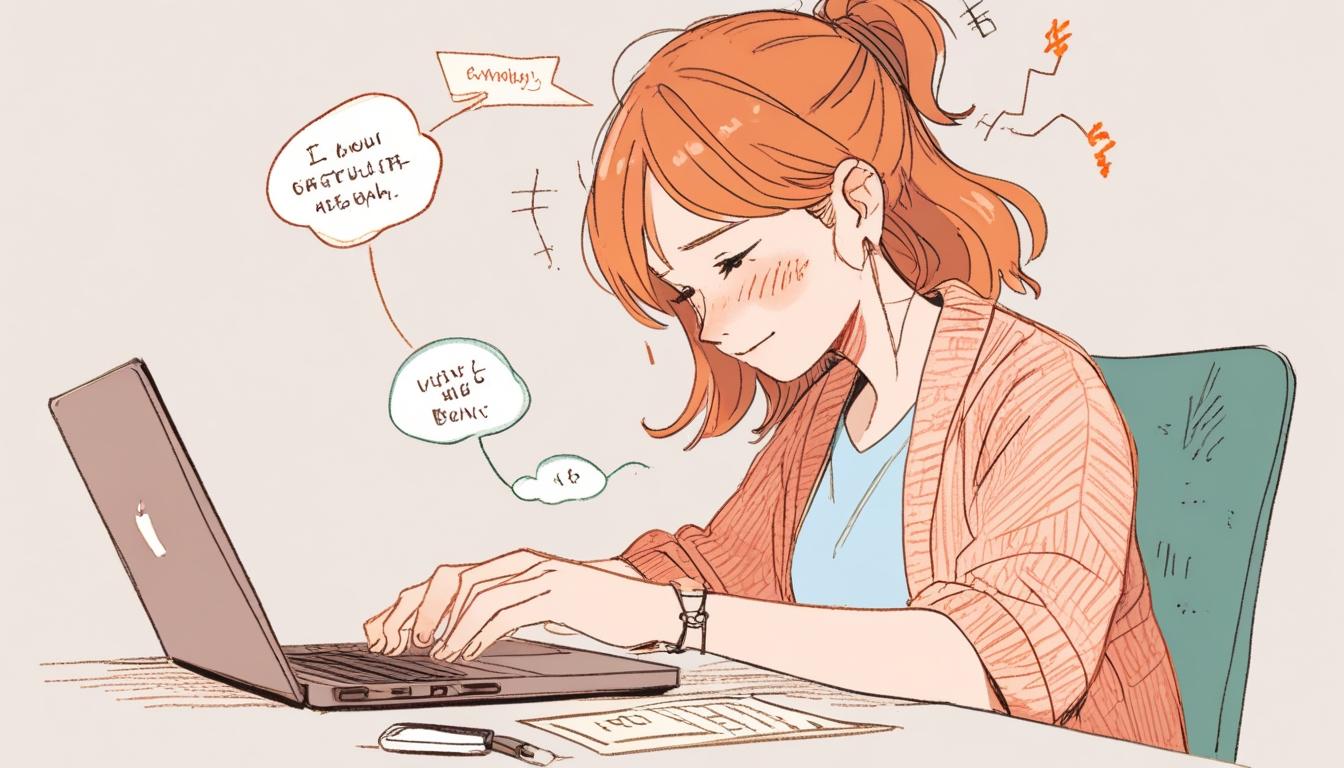As individuals turn to AI for emotional support amidst NHS delays, experts urge caution over the limitations of technology in therapy.
In recent times, the use of artificial intelligence as a substitute for traditional therapy has gained traction, particularly among women in the UK. Increasingly, individuals are turning to platforms such as ChatGPT as a means of coping with their mental health challenges, propelled by the high costs of conventional therapy and lengthy waiting lists for mental health services provided by the NHS. Reports indicate that individuals are eight times more likely to experience delays of over 18 months for mental health treatment compared to physical ailments.
Charly, a 29-year-old from London, is one such individual who sought solace in ChatGPT during a challenging period. She turned to the AI while dealing with her grandmother’s hospice care, finding it an anonymous outlet for her grief. “I’ve relied on ChatGPT for grief therapy over the last few weeks,” she stated, sharing how it provided a space for her to express her raw thoughts on death without judgement.
Ellie, a 27-year-old from South Wales, shared her experience with AI during her lowest moments, saying it validated her feelings and offered perspectives that felt helpful, albeit limited. Julia, a 30-year-old from Munich, noted how she used the application when her therapist was unavailable, describing the interaction as surprisingly beneficial, though she felt it lacked the personal touch she valued in human therapy. “If someone struggles with a mental illness, only professionals can help,” she concluded, emphasising the limitations of AI in addressing complex emotional issues.
Experts in mental health have been cautious about the reliance on AI for emotional support. Charlotte Fox Weber, a psychotherapist and author, warned that while tools like ChatGPT can offer information, they lack the empathy and understanding that human therapists provide. “It doesn’t care about you or feel for you,” she stated, highlighting AI’s inability to engage with the subtleties of human emotion. Similarly, integrative psychotherapist Tasha Bailey emphasised that therapy is fundamentally about the dynamics of human connection and emotional engagement, which AI cannot replicate.
Some users have found a middle ground, seeing AI tools as supplements rather than replacements for traditional therapy. For instance, Chanti, a 31-year-old from London, described how using ChatGPT for journaling helped her gain insights into her own thoughts, leading her back to therapy. Dr Kate Balestrieri, a therapist and founder of Modern Intimacy, acknowledged that while AI can foster self-reflection, it cannot diagnose or intervene effectively in crises, raising concerns about privacy and the ethical handling of sensitive information.
Amid these discussions surrounding AI and mental health, new innovations such as the AI meditation platform “Blair” are emerging. Created by Jeremy Blaze, this platform adapts to users’ emotional states rather than providing generic content. Blaze, who began coding at the age of 10, believes that AI’s true value lies not in replacing human interaction but in enhancing it. His design philosophy focuses on creating an AI that offers companionship rather than merely transactional interactions, establishing a digital presence that adds to a user’s sense of wellbeing.
Blair is particularly positioned to address mental health challenges, providing resources for those hesitant to engage with traditional forms of therapy. The platform’s adaptability to emotional patterns allows for a personalized experience, which Blaze argues could effectively bridge the gap left by conventional mental health resources.
As interest in AI-assisted emotional support continues to grow, questions arise about its role within mental health care. The Limitation of AI, particularly regarding empathy and crisis management, alongside the appeal of instant access to support, points to a complex intersection between technology and mental health. While it offers some immediate benefits, industry experts reiterate that such technologies are not substitutes for comprehensive therapy and professional support.
The evolution of AI applications for mental health reveals an ongoing dialogue regarding the boundaries of technology in fostering human connection and understanding emotional needs. As society navigates this shift, the insights from both users and professionals will be pivotal in defining the future of mental health care within a digital landscape.
Source: Noah Wire Services
- https://pmc.ncbi.nlm.nih.gov/articles/PMC11475598/ – This study highlights gender differences in preferences for mental health treatment options, including the use of AI-based therapy, and notes that while AI can be appealing for some, most people still prefer traditional human therapy.
- https://business.yougov.com/content/49481-uk-trials-ai-therapy – This article discusses the willingness of Britons to use AI chatbots for mental health support, with a focus on the appealing aspects such as ease of access and anonymous interaction.
- https://www.courts.michigan.gov/492eca/siteassets/publications/benchbooks/evidence/evidbb.pdf – Although this document primarily deals with legal evidence, it touches on the importance of authentication and reliability in digital information, which is relevant to concerns about AI data handling and privacy.
- https://ukstories.microsoft.com/features/12-more-breast-cancers-detected-with-potential-workload-savings-of-30-in-the-uks-first-prospective-evaluation-of-breast-screening-ai – This article highlights the effectiveness of AI in healthcare, specifically in breast cancer detection, demonstrating how AI can enhance medical outcomes when used alongside human professionals.
- https://www.mass.gov/guide-to-evidence/article-xi-miscellaneous – This legal guide discusses the admissibility of records in certain legal proceedings, which can be relevant when considering the legal implications of using AI in mental health, such as data privacy and confidentiality.
- https://www.noahwire.com – The original source article discusses the use of AI as a substitute for traditional therapy and shares individual experiences with AI tools for mental health support, highlighting both benefits and limitations.
- https://www.independent.co.uk/health-and-fitness/ai-therapy-chatgpt-b2725529.html – Please view link – unable to able to access data
- https://news.google.com/rss/articles/CBMiggFBVV95cUxNZEpNeS1PSkU4XzdVOGhqcENsWkxuMUNqZUl0LVY5bjRWWGdrWlBvcmc4dXFQQW94SlczWG1CQUdmN0NiOVNVQVR4NDhaS0tVbHFrUGJJWG5BaXRPMXhZaG1iRG9lQk4xTnZxSDhreG9xbTFYcEs0SUlPc3Q2am96djV3?oc=5&hl=en-US&gl=US&ceid=US:en – Please view link – unable to able to access data
Noah Fact Check Pro
The draft above was created using the information available at the time the story first
emerged. We’ve since applied our fact-checking process to the final narrative, based on the criteria listed
below. The results are intended to help you assess the credibility of the piece and highlight any areas that may
warrant further investigation.
Freshness check
Score:
8
Notes:
The narrative discusses current developments in AI-assisted therapy, referencing platforms like ChatGPT and emerging technologies such as the Blair AI meditation platform. While it is focused on recent trends, there is no specific date or event that would immediately suggest it is out of date, but it lacks references to very recent events.
Quotes check
Score:
7
Notes:
Quotes are provided from individuals like Charly, Ellie, Julia, and experts such as Charlotte Fox Weber and Tasha Bailey. However, without further research, it is unclear if these quotes have appeared in previous publications or if they are original to this narrative.
Source reliability
Score:
9
Notes:
The narrative originates from The Independent, a well-known and reputable publication in the UK. This generally indicates a high level of reliability and accuracy in reporting.
Plausability check
Score:
8
Notes:
The claims about AI being used as a supplement to traditional therapy are plausible and align with current discussions in the field. However, specific figures like users being ‘eight times more likely to experience delays’ for mental health treatment could not be verified.
Overall assessment
Verdict (FAIL, OPEN, PASS): PASS
Confidence (LOW, MEDIUM, HIGH): HIGH
Summary:
The narrative is generally reliable and discusses current themes in AI-assisted mental health therapy. It lacks certain verifications but comes from a credible source and presents plausible claims.













